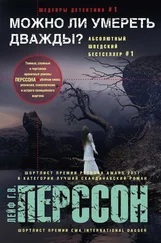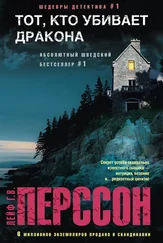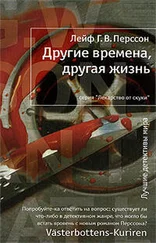According to Krenz himself Schabowski was supposed to “emphasize” the decision about a new travel policy. This was world news, a sensation. According to Schabowski he was “not supposed to emphasize anything in particular” but rather simply hand out a bundle of papers with the usual mixture of high and low, mostly just verbiage.
If the latter version is true, this at least explains Schabowski’s peculiar behavior during the press conference. Toward the end of it he was asked whether the new travel policy, which had been discussed publicly for the first time a few days earlier, should not actually be seen as a great mistake.
The reply Schabowski gave was verbose, hard to understand, beside the point, and astounding in its significance. In brief he said that the Central Committee had decided that every East German citizen was now free to leave the country. The people’s police had been instructed to immediately issue visas for foreign travel to those who so desired, at all border stations between East and West Germany including those in Berlin. And considering what happened later, this was not bad news.
Major Manfred Sens of the East German border police was free that evening. He was sitting in the living room at home in his apartment on Strassburger Strasse in Prenzlauer Berg in the north part of East Berlin, and was following the broadcast of the Central Committee’s press conference on his TV. Toward the end of the broadcast, after the customary questions of typically variable quality, something happened that, according to what he himself is reported to have said, caused him to choke on his evening coffee. It was when Günter Schabowski spoke about the new travel policy that had just been adopted.
Major Sens was assistant head of the border post at Bornholmer Strasse in Prenzlauer Berg, not far from his home, which was convenient considering that he immediately put on his uniform and went there. When he arrived, his colleague and chief, Lieutenant-Colonel Harald Jäger, was already on the scene, as growing hordes of Berliners started to stream in. A large number of them Sens recognized too because they were his own neighbors. What was worse was that neither he nor Jäger had any idea what to do, and the situation quickly threatened to get completely out of control.
At nine o’clock in the evening Jäger phoned the minister of security to ask for advice. The minister’s spokesman suggested that the most belligerent should be let through, miserable advice that for lack of anything better was followed nonetheless. The agitation in the mass of people had only increased as the pressure on the guards became more intense, and at ten-thirty in the evening Major Sens capitulated and personally opened the border gate to West Berlin. During the first hour twenty thousand people are estimated to have crossed the border at Bornholmer Strasse alone, at the same time as corresponding scenes played out at all the other border crossings in the city.
It was Major Sens’s last duty at the border post. As a citizen of the Federal Republic he would receive new employment as a ticket-taker in the subway, which in any case was a freer, better-paid job than the position as a coat checker at the historical museum on Unter den Linden, which is what his old colleague Jäger got, right next to Neue Wache where Jäger, at one time in the bad old days, had commanded the military honor guard.
And for none of them — whether in a status-related or in an economic sense — was their experience of capitalism much like the paradise that many of their countrymen had imagined. On the other hand, both of them got considerably more than the generally allotted fifteen minutes of fame that was also said to characterize free life in the West.
Within the leading intelligence services of the Western world the situation that became a reality in the fall of 1989 had been predicted going back ten years, and the only mistake that had been made was that the majority of the analysts who worked with the issue had set the breaking point even a few years earlier.
The one who had done best at the CIA was Mike “The Bear” Liska, despite the fact that he was neither an analyst nor working at that time with any of the departments responsible for the member states of the Warsaw Pact. In the spring of 1984 there had been a large internal conference at headquarters in Langley during which the invigorating question of the timing of the opponent’s collapse was at the top of the agenda. Over two cram-packed days featuring primarily economic analyses the nation’s combined intelligence elite were present in full force.
At the usual follow-up gathering on the last evening, bets were made on the timing of the fall of the Berlin Wall, and it would be Liska who both kicked their asses and made himself a decent pile of cash to boot. “Give the motherfuckers five years and their usual bonus for getting it wrong twice,” said Liska, and when the list of wagers went around he put a hundred dollars on “late autumn ’89, most likely November.” The majority of those standing around shook their heads and thanked him for the money and all the beer they would drink at his expense long before then.
Michael Liska was born in 1940 and grew up in a suburb of Pest some twelve miles south of the Hungarian capital. When the Hungarians fomented an uprising against the Soviet Union in 1956, he took part in the armed struggle on the streets of Budapest, and when the whole thing was over he fled by the usual route. Crossing the northern border with Austria and via a refugee camp in West Germany he ended up in Akron, Ohio, having just turned seventeen in his new homeland, the United States, where he was taken care of by fellow countrymen who had emigrated two generations earlier.
After completing university studies he applied to the Marine Corps, trained as an officer, and even before graduation day was directly recruited for the fleet’s intelligence service. He remained there for almost ten years until the CIA made contact and made him an offer he could not refuse. In addition to his native Hungarian, he also spoke fluent Russian and German, so his mission was also a given. During the following ten years he would spend more time in West Germany, Scandinavia, and the rest of Europe than in his second homeland, the United States.
Liska was a classic operator, an intelligence officer with responsibility for a large number of field agents who were working behind enemy lines, and his successes finally became so numerous that his supervisors no longer wanted to risk having him out there in the field; instead they brought him home to headquarters in Langley, Virginia, and made him head of the Scandinavian division. And it was in that capacity that he participated in the “collapse seminar” in the spring of 1984.
Four years later, in the spring of 1988, he suggested to his top superior that he should be relocated to one of the working groups that had been trying for the past several years to put some order into the logistics needed before the opponent’s impending breakup.
“We’re close now,” said Liska, and because his boss had an excellent memory and knew that Liska’s was now the only name remaining on the renowned betting list, he had asked him to propose his mission himself. “East Germany,” said Liska.
“Why East Germany in particular?” his boss asked in surprise. According to the analyses he had studied, the GDR was more likely the hard core of the collapsing Soviet empire. “What do you have against Hungary, by the way?” With his background, wouldn’t that be almost an ideal area to tackle? “Or Poland, or Czechoslovakia too for that matter? Why East Germany, for heaven’s sake?” Because it was the GDR that would be the first domino to fall, answered Liska. “They’re going to break like a dry twig,” said Liska, and that was how it turned out.
Читать дальше












